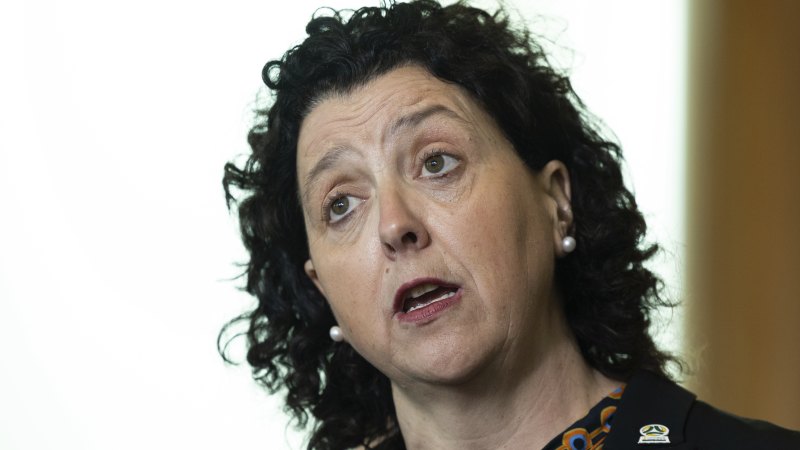‘Toothless and ineffectual’: Lobbying crackdown to be put to parliament

Save articles for later
Add articles to your saved list and come back to them any time.
A sweeping plan to crack down on lobbyists will be put to federal parliament on Monday in a bid to force firms to reveal meetings with politicians and stop former ministers moving swiftly from government positions into lucrative private jobs in the same portfolio.
Warning about a loss of trust in government, independent MP Monique Ryan will seek support for the draft law to tighten the lobbying rules and force much greater disclosure on federal ministers, including the release of diaries to show who they meet.
Monique Ryan said she had been shocked by the number of lobbyists she had seen in Parliament House since her election as the member for Kooyong in May last year.Credit: Alex Ellinghausen
In a separate test for the major parties on integrity in government, Victorian independent Helen Haines will put forward changes to legislation on government grants in a bid to set tougher benchmarks for programs that spend billions of dollars in taxpayer funds.
Haines appears likely to gain support from Liberal backbencher Bridget Archer for a motion to seek the changes, highlighting the cross-party support for stricter oversight of the funding programs.
Parliament resumes on Monday for one of its final sitting weeks this year, with the government planning to prioritise reforms to water rights in the Murray Darling river system, workplace relations and social security changes to help pensioners and veterans who return to the workforce.
However, the crossbench is mobilising on its own agenda, with Senate independents David Pocock and Jacqui Lambie challenging Labor to separate its industrial relations bill to pass urgent changes that benefit emergency workers, silicosis sufferers and family violence victims.
On another front, the government has postponed its misinformation bill until next year after struggling to gain support.
The push for tougher lobbying rules would extend the existing lobbyist register to cover more people, restore a ministerial staff directory that used to show who worked in ministerial offices, and impose financial penalties on those who flouted the rules.
One change would force ministers and senior public servants to wait three years after leaving their positions before they could work as a lobbyist in the same portfolio.
The lobbying code of conduct is meant to impose a formal separation period of at least one year between a post in government and a lobbying position in the same policy field. But a report earlier this year by independent think tank the Centre for Public Integrity said too many former officials were being signed up by political donors with “very little time” between the two jobs.
“The lobbyist register that we have at this point is toothless and ineffectual,” Ryan said.
“And we have a crisis of confidence in government. There’s a trust deficit from the general public around government decision-making.
“We know that every week the government makes decisions which are not in the best interests of the Australian public, and we don’t know why that is, but we suspect, I believe, it’s because the government is responding to vested interests, represented by lobbyists, who are in their ear and influencing their decisions.”
Ryan said she had been shocked by the number of lobbyists she had seen in Parliament House since her election as the member for Kooyong in May last year.
This masthead revealed in May that the number of sponsored passes in Parliament House – a group that includes lobbyists – reached 1791 in February, prompting calls to disclose whether MPs were helping to arrange the security passes for some of the lobbyists.
Ryan said she had spoken to Attorney-General Mark Dreyfus about her bill but had not received any promise to allow a debate on the proposed changes.
The government appears likely to use its numbers to deny any chance to debate the bill on the floor of the House of Representatives, starving it of time and attention in the hope it will fail to gain wider support.
But the changes seek to allow the sort of access both Labor and Liberal MPs have argued for in the past. When in opposition, Dreyfus called for access to the diary of then attorney-general George Brandis.
“If they’re not prepared to debate this, and they’re not prepared to have a vote on this in the House, that tells you something,” Ryan said.
The bill will be listed on Monday as a private members bill and Ryan will release the draft, while asking the government for a debate on the changes.
Cut through the noise of federal politics with news, views and expert analysis. Subscribers can sign up to our weekly Inside Politics newsletter.
Most Viewed in Politics
From our partners
Source: Read Full Article
